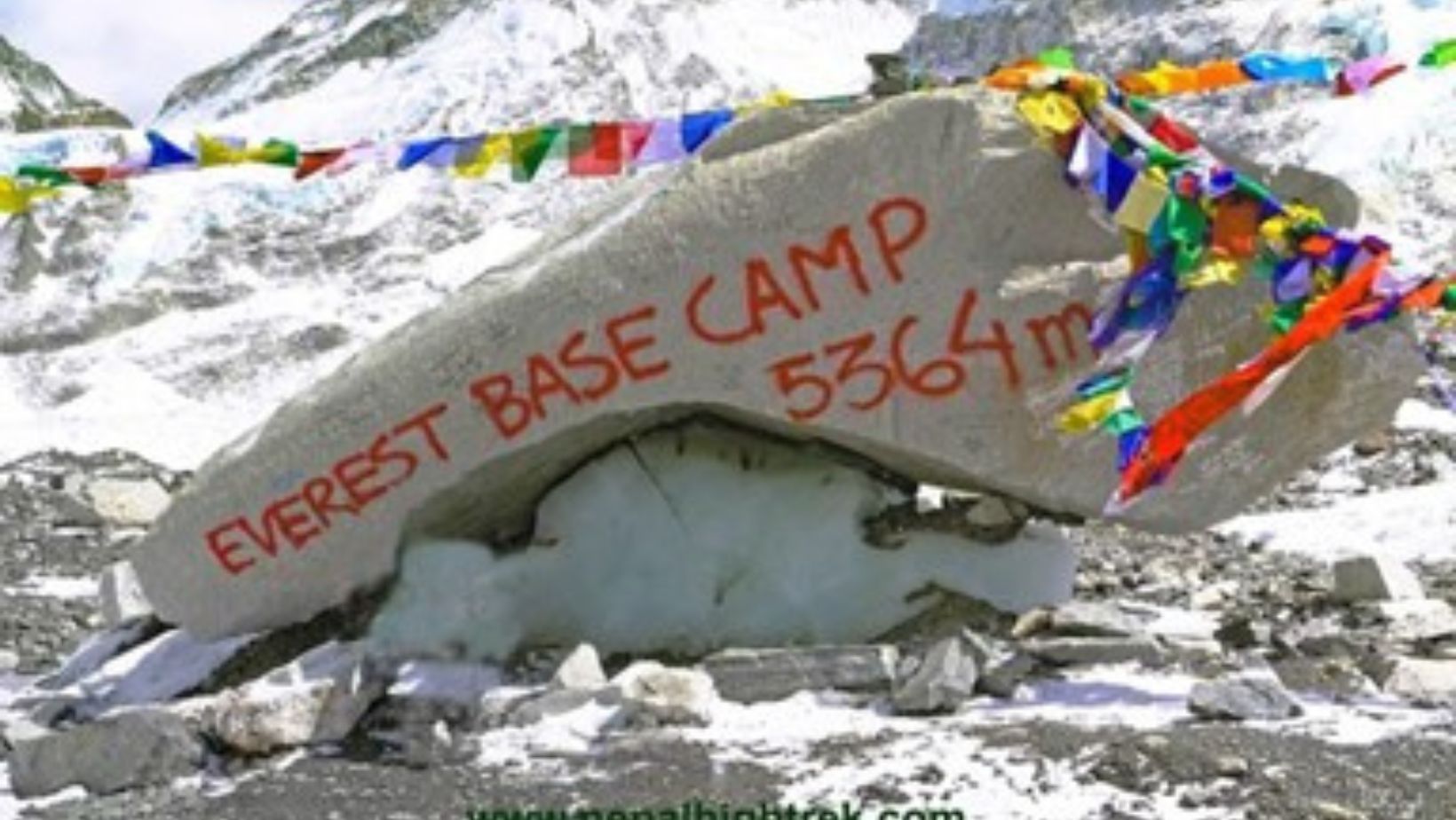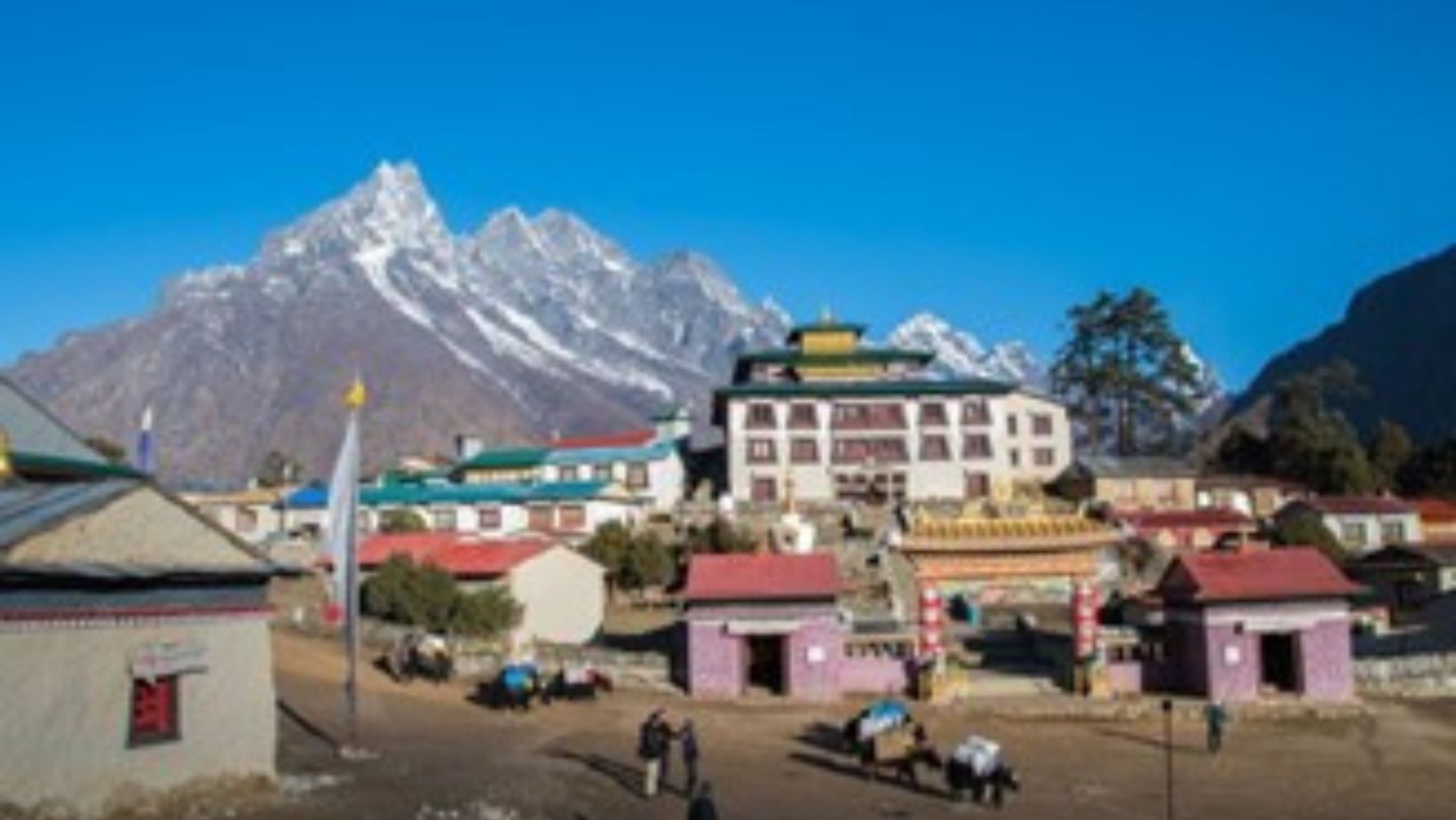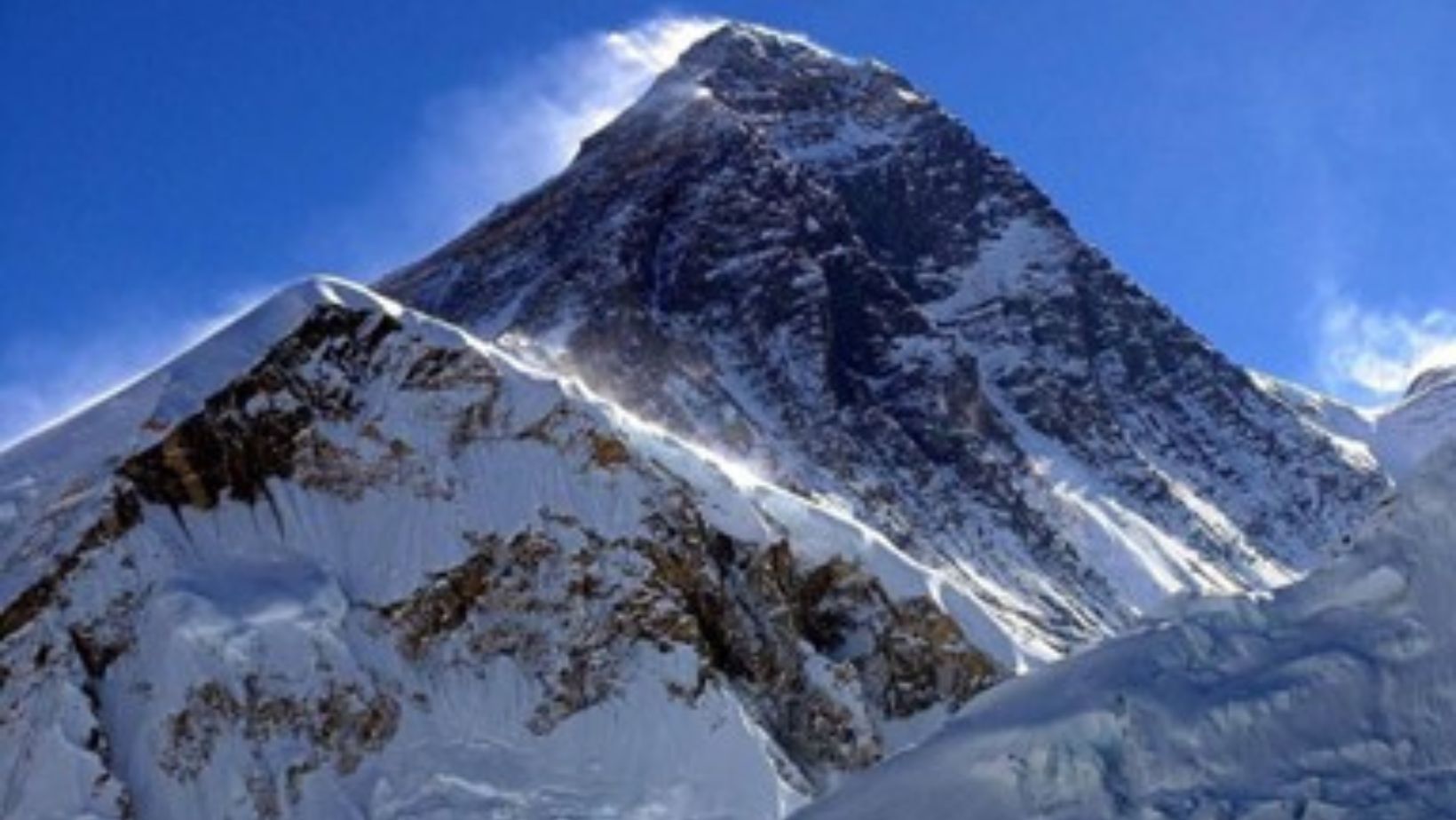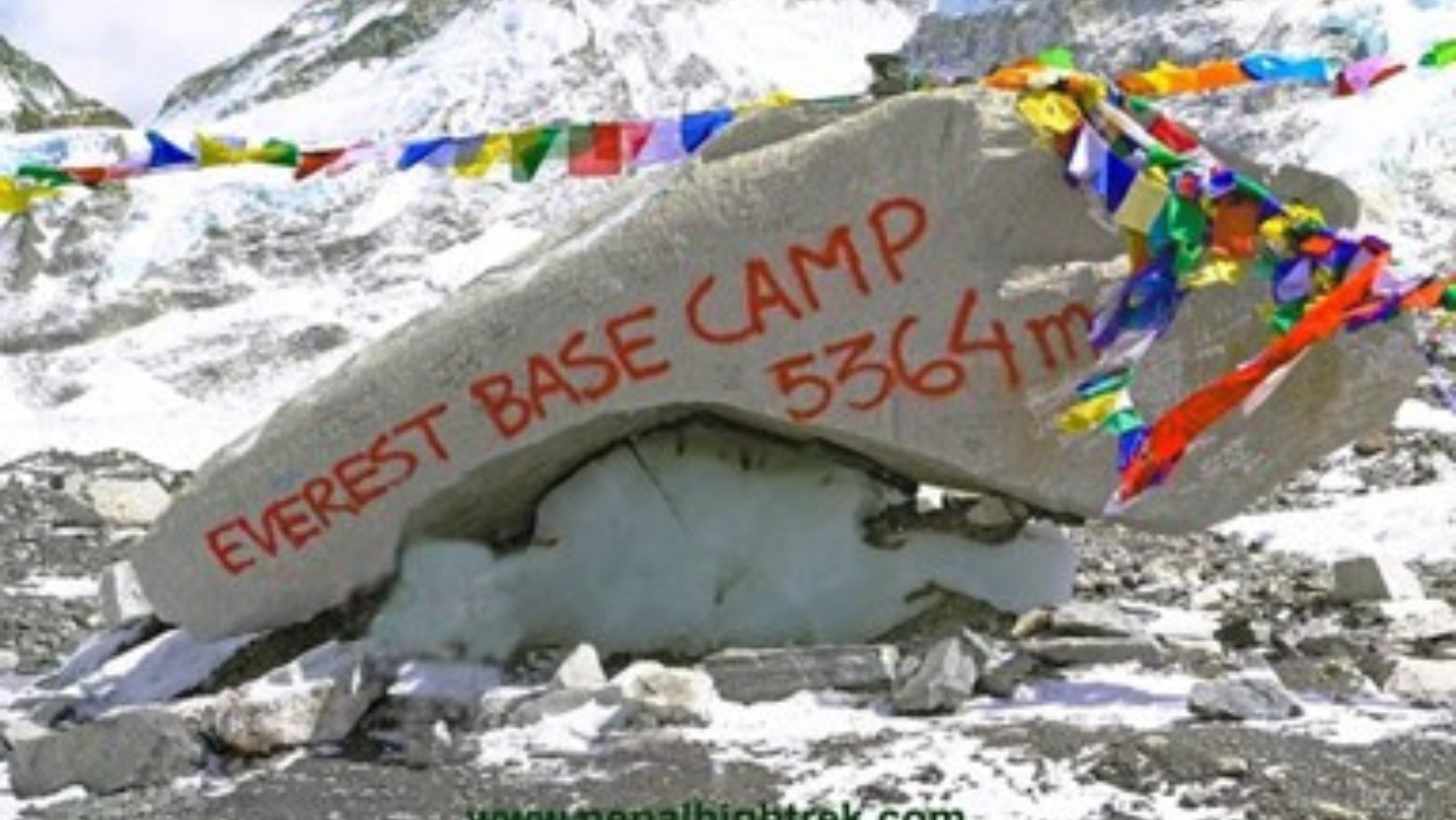
Many people dream of visiting Everest Base Camp (EBC), which provides a memorable trek through the mountains to the highest peaks in the world. This 14-day journey not only presents awe-inspiring landscapes and vibrant culture but also challenges hikers to test their boundaries. So, what sets this trek apart? Let’s delve in and find out.
What Makes The Everest Base Camp (EBC) Trek So Special?
The trek to Everest Base Camp is enticing, offering stunning natural beauty, a vibrant culture, and a gratifying sense of accomplishment. The trail meanders through charming Sherpa villages and lush rhododendron forests, crossing bleak yet beautiful alpine landscapes. Along the way, you’ll witness some of the world’s tallest peaks, such as Lhotse, Nuptse, and of course, Everest itself.
The trek not only offers an encounter with the surroundings but also a chance to experience the Sherpa culture. Visitors get to explore ancient monasteries and interact with local groups, gaining an understanding of the Buddhist way of life that has flourished on this harsh terrain for centuries. The feeling of accomplishment that comes with reaching the base of Mount Everest is unparalleled, demonstrating one’s determination and resilience.
How Long Does It Take To Hike To Everest Base Camp?
The standard Everest Base Camp trek takes 12 to 14 days. This consists of acclimatization days and the return journey. The trek covers roughly 130 kilometers (80 miles). It begins with a flight from Kathmandu to Lukla, one of the world’s most exciting airstrips.
The usual itinerary includes two acclimatization days. One day is spent in Namche Bazaar, and the other in Dingboche, allowing trekkers to adjust to the high altitude. These rest days are crucial in preventing altitude sickness, which can affect anyone regardless of their fitness level.
Typically, it takes 8 to 9 days to trek to Base Camp, and an additional 3 to 4 days are needed for the return journey. Although the distance may seem short, the high altitude and difficult terrain make it a challenging trip. It’s essential to allow time for acclimatization and to maintain a steady pace.
How Difficult Is The Trek To EBC?
Hiking to Everest Base Camp presents a significant physical challenge. The primary and most daunting challenge is the high altitude, rather than the technicalities of the trails. The journey starts at 2,860 meters (9,383 feet) in Lukla and reaches a maximum height of 5,364 meters (17,598 feet) at the base camp.
Hikers should be ready for lengthy periods of walking, typically between 5 to 7 hours daily, involving uphill climbs and challenging trails. High altitudes may result in breathlessness, headaches, and tiredness. Therefore, it’s crucial to manage your pace and stay hydrated. Having prior hiking experience isn’t necessary, but being physically fit and resilient is essential.

In other words, the journey is achievable for the majority of people, as long as they are determined and willing to practice. To successfully accomplish the trek, one should acclimate, maintain a slow pace, and heed the body’s signals.
What Are Tea Houses Like?
The Everest Base Camp trek is uniquely characterized by teahouses, which are local lodges situated along the trekking routes. These modest yet comfortable accommodations offer trekkers a peek into local living, while also supplying them with essential amenities.
The majority of tea houses offer rooms for two, complete with beds, blankets, and pillows. The amenities provided are fundamental, including shared bathrooms and communal dining spaces. Trekkers can partake in meals and heat themselves near the stove. The food served is typically filling and rich in carbohydrates, including dal Bhat (a lentil soup served with rice), noodles, potatoes, and momos (dumplings).
Tea houses offer a comfortable experience, but it’s crucial to temper expectations. Typically, hot showers are available for an additional cost. However, there might be restrictions on electricity for device charging. The warm hospitality of the Sherpas and the companionship among trekkers make the experience unforgettable.
What Should I Bring?
Thorough packing ensures a successful trek to Everest Base Camp. The trick lies in carrying necessary items without overstuffing your backpack. Here’s a list of must-haves:
Layering your clothing is crucial to handle fluctuating temperatures. Ensure to have moisture-absorbing base layers, insulating middle layers, and a waterproof outer layer. Remember to include a cozy hat, gloves, and a down jacket for those chilly nights.
Footwear: Trekking boots that are sturdy, fit properly, and provide necessary ankle support are essential. Make sure to wear them in before the trek to prevent blisters.
Accessories: Ensure sun safety by wearing UV-protecting sunglasses, a wide-brimmed hat, and applying sunscreen. It is also advisable to have a top-quality sleeping bag rated for -10°C (14°F) or below.
Health and Safety: A primary resource kit is crucial. It should include medication for altitude sickness, treatments for blisters, and basic pain relievers. Additionally, water purification tablets or a purifying device can be provided to guarantee clean drinking water.
Additional Necessities: You’ll need a sturdy backpack, hiking poles, and a headlamp with extra batteries. A refillable water bottle is also essential. Think about bringing along snacks such as power bars and nuts for immediate energy surges.
Do I Need A Porter And Guide?
Trekking to Everest Base Camp independently is possible, but it is strongly advised to hire a guide and porter. Besides leading the way, a guide can provide valuable understanding about the local culture, geography, and history. They are also beneficial in emergencies and can offer advice on acclimatization strategies.
Conversely, porters shoulder your heavy gear, enabling you to hike with a less cumbersome daypack. This lessens the physical stress and enhances your hiking experience. Hiring local guides and porters not only benefits you, but also bolsters the local economy. It generates crucial income for the communities situated along the path.
How Much Does The Everest Base Camp Trek Cost?
The cost of the Everest Base Camp trek can fluctuate depending on factors such as the trekking agency, the quality of service, and the season. Generally, the cost per person ranges from $1,355 to $2,700. This price includes permits, accommodation arrangements, food supplies, guided tours, and local air travel.

Keep in mind that there are budget-friendly options available. However, cheaper doesn’t necessarily equate to better quality. Ensure that your chosen trekking agency has a good reputation. They should have well-trained guides and porters to ensure a safe and enjoyable trekking experience.
EBC Trek Costs Start From $1,355 To $2,700 Per Person
As previously stated, the price for the Everest Base Camp trek begins at $1,355 and can go up to $2,700 per person. This cost variation is based on the quality of comfort and services offered. Lower cost packages typically include basic teahouse accommodation and meals. In contrast, more expensive packages might offer superior lodgings, meals, and personal guides.
It’s prudent to investigate and select a package that accommodates your budget, while guaranteeing safety and comfort. The journey to Everest Base Camp is priceless. A meticulously planned trek can substantially enhance the experience.
Do I Need Any Permits?
Indeed, trekking to Everest Base Camp will necessitate obtaining several permits. The permits you will need include:
- In order to enter Sagarmatha National Park, home of Everest, a Sagarmatha National Park Entry Permit is required. This permit can be obtained either in Kathmandu or Monjo, a village situated along the hiking route.
- Permit for Khumbu Pasang Lhamu Rural Municipality: Introduced in 2018, this permit has replaced the TIMS card for the Everest region. You can get it in either Lukla or Kathmandu. Usually, your trekking agency will handle the arrangement of these permits. It is important to secure these essential permits before embarking on your solo trek.
Conclusion
The trek to Everest Base Camp is more than a mere adventure. This expedition tests your physical and mental strength in a distinctive manner. It compensates you with some of the world’s most breathtaking scenery. The exhilaration of walking in the shadow of Everest. The welcoming nature of the Sherpas. The sense of accomplishment upon reaching Base Camp. Each instant of the hike is a tale worth narrating.
Ensure you are well-prepared to maximize this experience, fully comprehend the challenges, and show respect for the local culture. The trek to Everest Base Camp is an experience you won’t forget, enticing adventurers with its towering peaks and the opportunity to test one’s mettle. Nepal High Trek And Expedition Pvt. Ltd., headquartered in Kathmandu, Nepal, is a trustworthy local trekking company that offers a variety of services including multi-day tours, treks, climbing, and related activities for individual travelers and private groups. To get in touch, email us at [email protected] or message us on WhatsApp at +977-9851142116.

